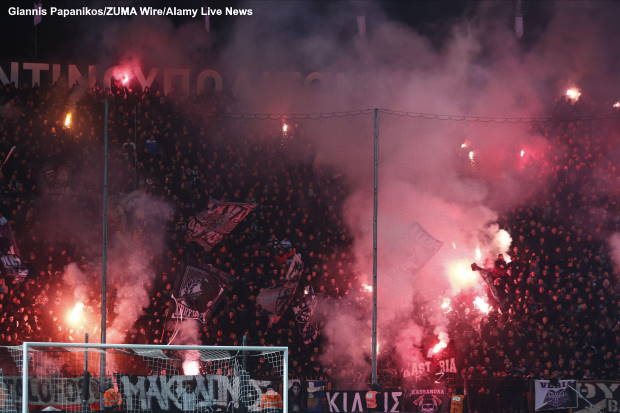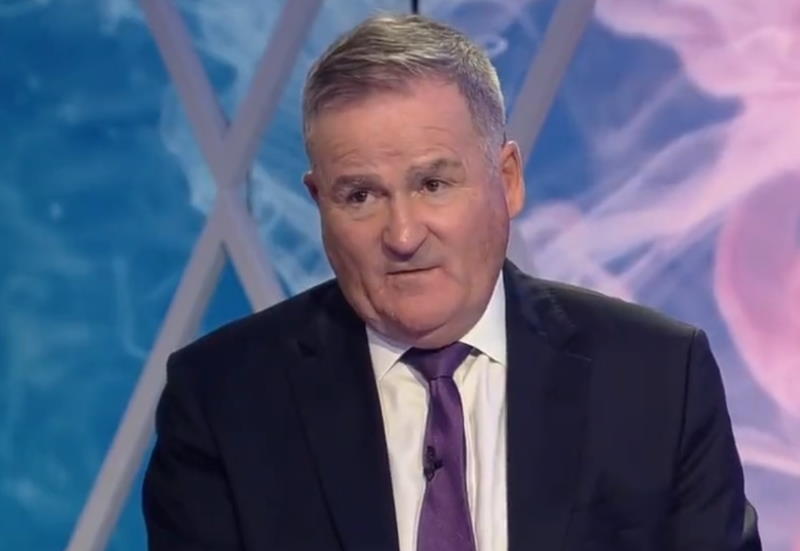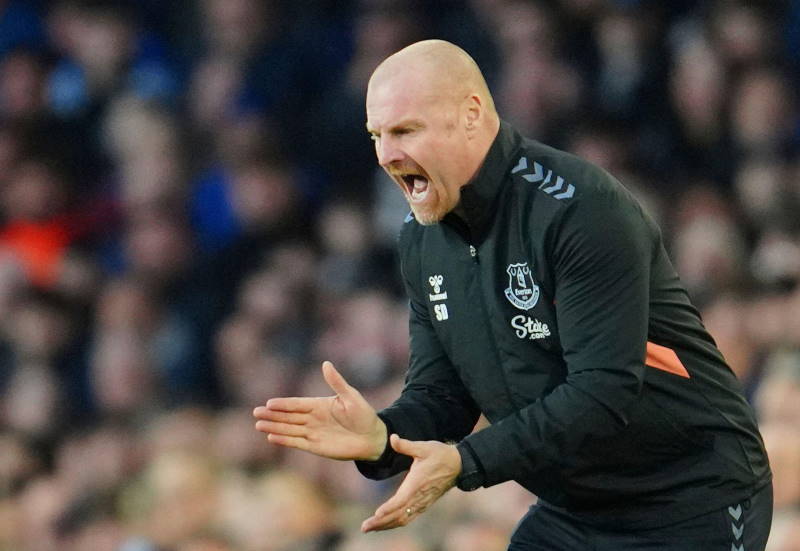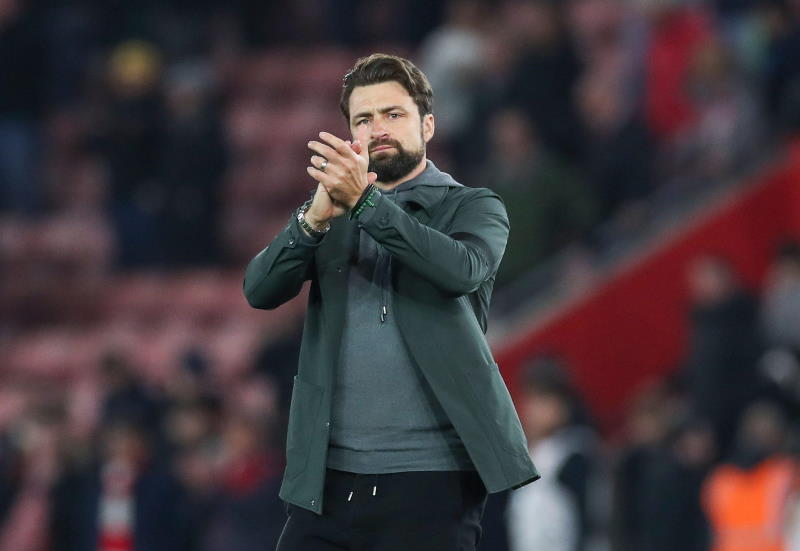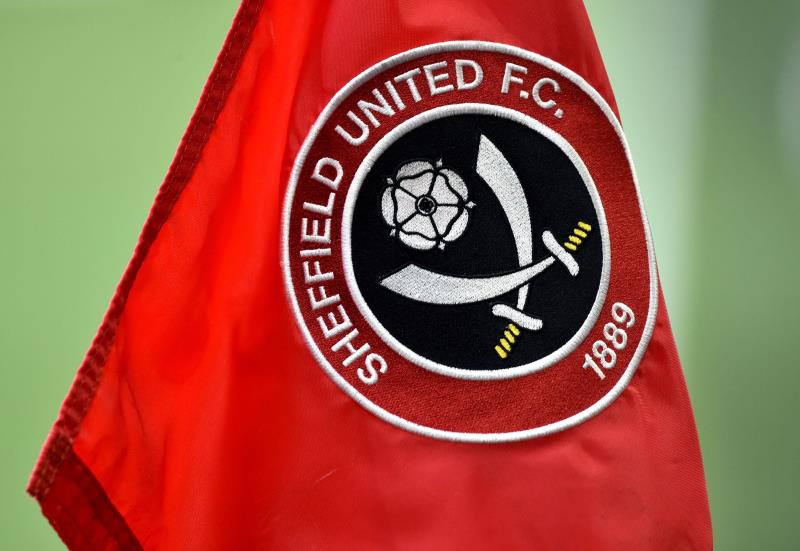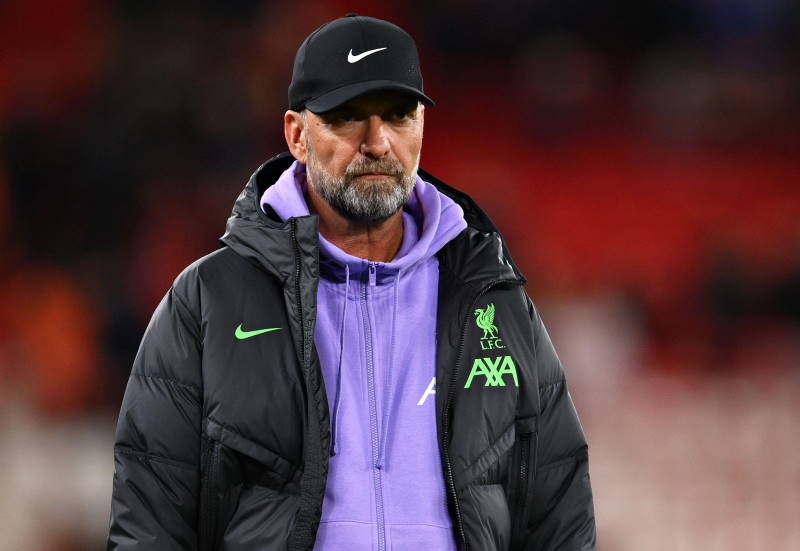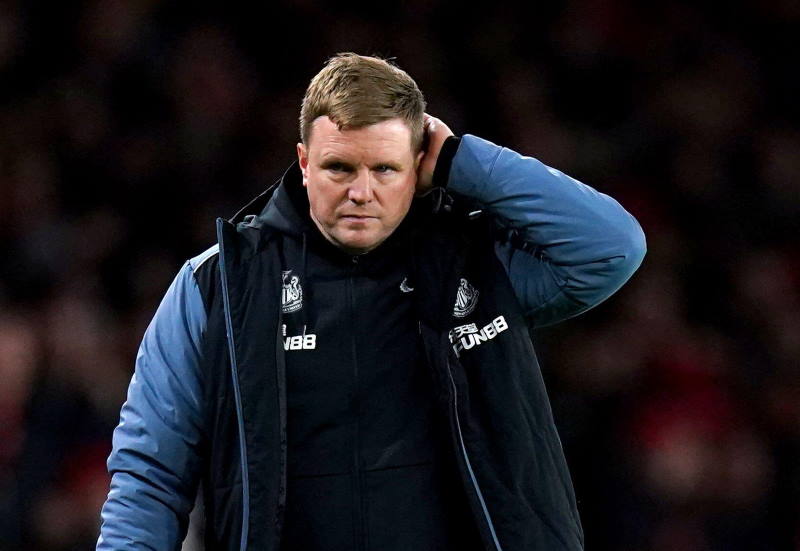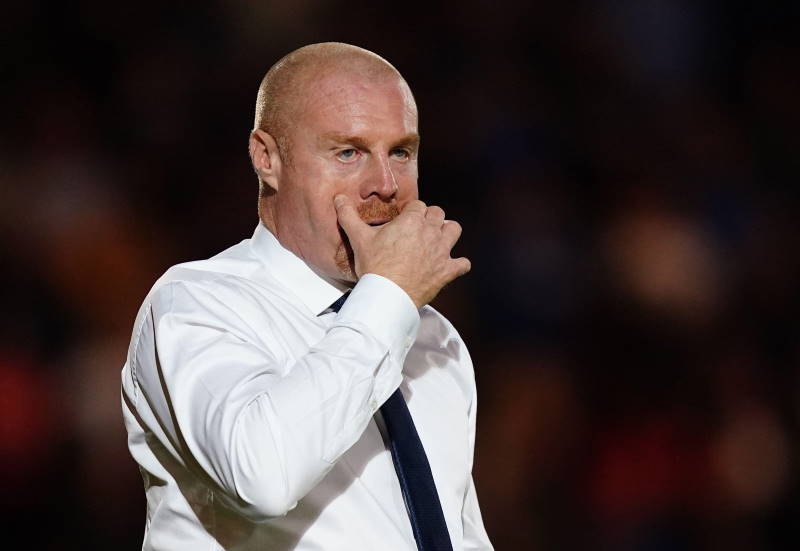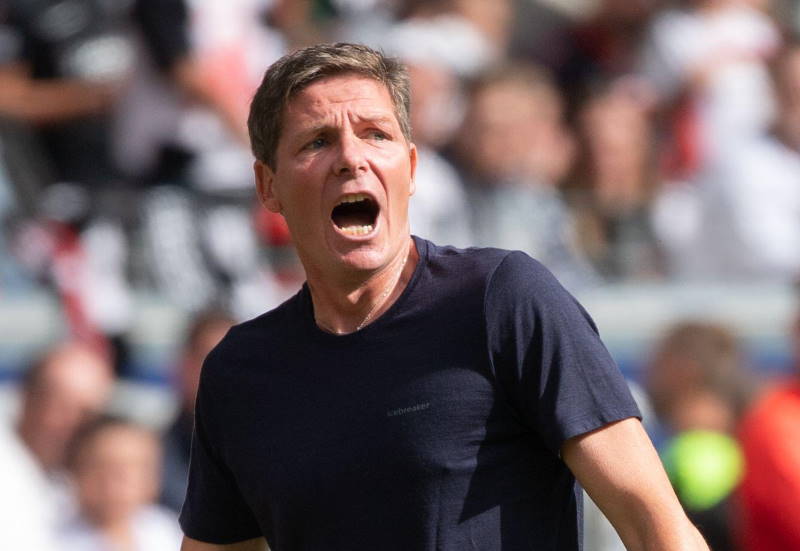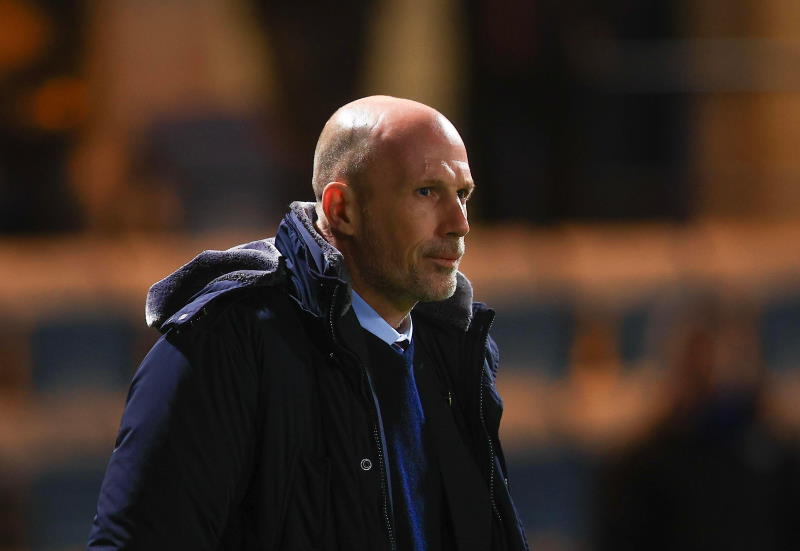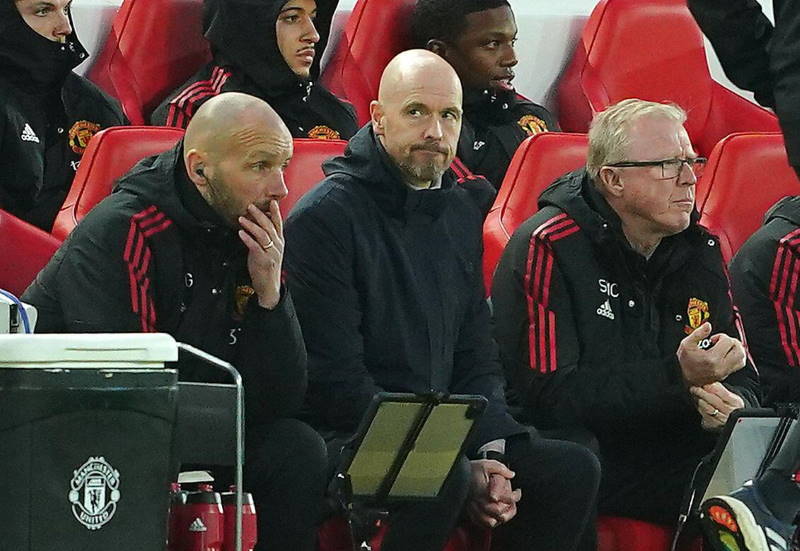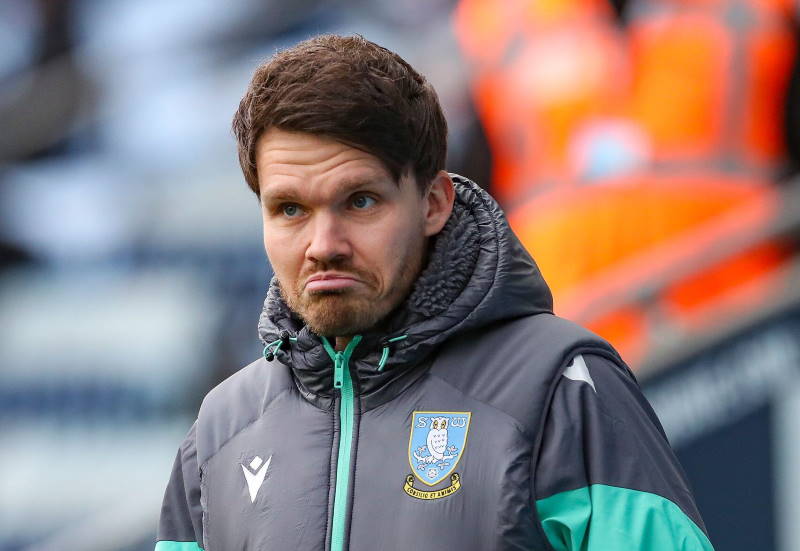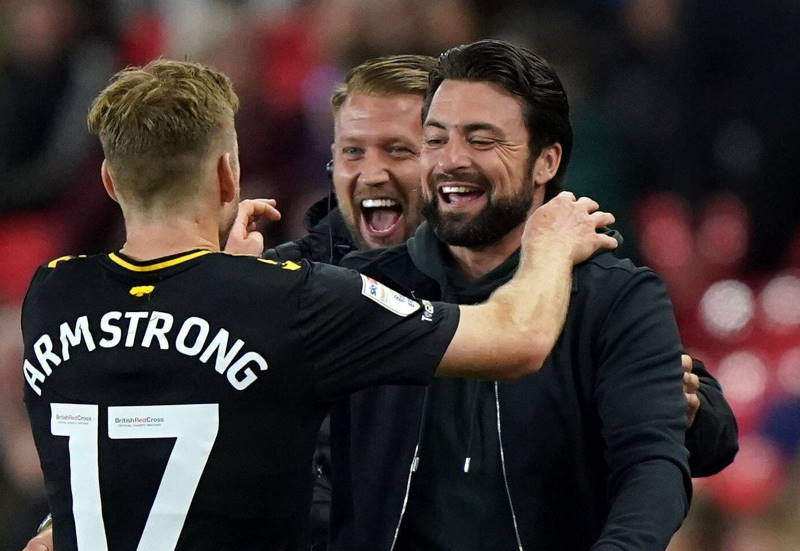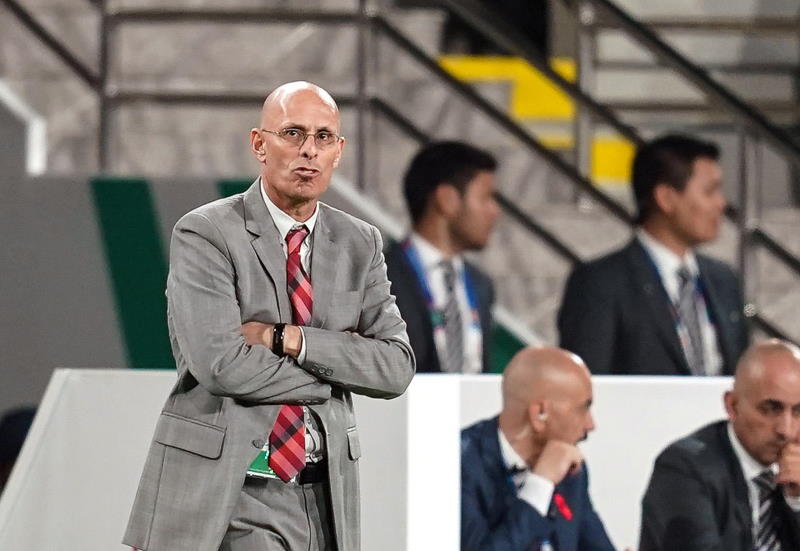Inside Futbol (IF): You have been at Indian Super League club East Bengal since August last year. Do you think the project has unfolded in the way you expected it to?
Stephen Constantine (SC): East Bengal are a massive club but our expectations for them are not accurate in that sense that we have been in the ISL for three years and this season we finished with the most points, the most goals scored, the most games won and most assists for an Indian player (Naorem Singh) and top scorer (Cleiton Silva) but we didn’t make the playoffs and that is considered not success.
But when you look back, we started training on 4th August with 12 players in the Maidan (a sprawling space of greenery at the heart of Kolkata where clubs such as East Bengal and Mohun Bagan have their training spaces) and you go through all the problems I did at the beginning of the season, we are not going to the playoffs. We cannot go to the playoffs when you start preparations six weeks after everybody else. We couldn’t get the Indian players we wanted, we couldn’t afford some of the foreigners but still it’s the best season we have had in the three years in the ISL.
IF: What do you think are the limiting factors that affected East Bengal?
SC: The limiting factor is the lack of consistency. In the last four years, East Bengal had ten coaches; I am number eleven. I think I am the only coach of the ten who survived a season. Of course, the club have decided that they will change because whatever and I think they are going to have the same problems again because now they will need a new coach, he will need new players, he will need a new system and as long as you keep changing the coach every year, and I feel honoured that I survived the whole season because most of the other guys didn’t, I don’t think it’s a good situation to keep changing the coach but the club have decided.
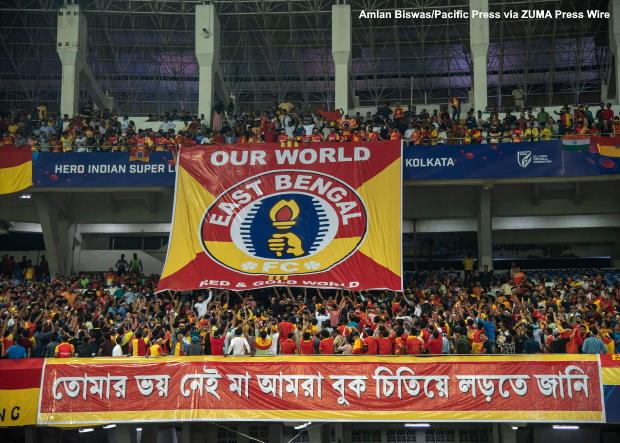
IF: The ISL continues to attract managers of real pedigree like you. How big can this tournament get in the future?
SC: The ISL has been going, I think this was the ninth season. We are eleven teams. If we want to be considered as a top league in Asia, we need to be at least 12 teams, we need to be competitive in the Asian cup competitions and to do that, we need a ‘league’. At the moment, the top six teams qualify for the playoffs and the other five teams do nothing. As you can see, we have a 40-day break from when the ISL finished for the teams that didn’t qualify for the top six and the Super Cup in two weeks. This is not acceptable in a professional development of any type of league. Then we have the playoffs (an ISL Cup is presented to the playoff winners while the ISL champions are declared at the conclusion of the league games), what is that all about?
Let’s have a league winner who win the championship and qualifies for the AFC Champions League, the second guys can go to the AFC Cup and the third guys can go to the AFC Conference. If you ask all the coaches, they would go for this league format.
IF: Do you think not having relegation is a problem?
SC: I do. I think it’s a massive problem because there is no urgency. Let me tell you that having been at the top end of a league and trying to win it and being at the bottom end, the intensity and the competition at the bottom – you are fighting for your life, your football life, your economical life because the money drops when you go to a lower division and it’s an absolute must for ISL and India. We have to do it.
IF: When you were the head coach of the Indian national team, was there some friction with the ISL?
SC: I wouldn’t call it friction. My problem was if I couldn’t get the national team players to come to the camp and prepare for the national team games, how was I going to qualify for the Asian Cup? My issue was that we had seven foreign player in the ISL and four Indian players. Our pool is already limited. I have gone to see eight Indian players out of the possible 22 and out of those eight, six of them would not be playing in the position they should be playing because we are accommodating the foreigner instead of the other way around. That was my problem.
IF: Do you think there is a better link between the national team and ISL now and more of an understanding?
SC: Yes, I think so. It’s not perfect. The problem up here is that some of us are thinking football and some of us are thinking television or sponsorship. What we have got to remember is that football is the number one game in the world bar none and if we are going to jump on that bandwagon and make the money that is available we need to put football first, which means the players, the competition and the TV. At the moment, we have a league but we are restricted. The season is too short. Why? Because the cricket starts.
My example is the United States. Professional hockey, American football, soccer, basketball and baseball. Those five sports are watched by the people who want to watch that sport. For me, there is no competition. If we have football on at the same time as cricket, we are not going to lose because the people who want to watch football are going to watch football and the guys who want to watch cricket will watch cricket.
IF: You had ten years between your two stints as Indian National Team head coach. When you came back for your second stint, did you see any fundamental positive difference?
SC: There was more interest in the sport. There was more exposure. I have to give credit where credit is due and what the ISL did is to put India on the map from a merchandise, from a business and from a TV point of view. Look we can make money playing football in India and we could not say that before.
The way that the game is packaged here is excellent. It’s at the same level as Sky Sports. Could we do a few things [differently] and could there be changes? Yes, sometimes the commentary is not great, but in general the packaging of the football is excellent. Now we need to have a better product. For that we need 12 to 16 teams, we need relegation-promotion and we need a cup competition. We have the Super Cup now, 40 days after the league finished. Get the cup during the league as knockout games and have the I-League teams involved and I think it would be so much better.
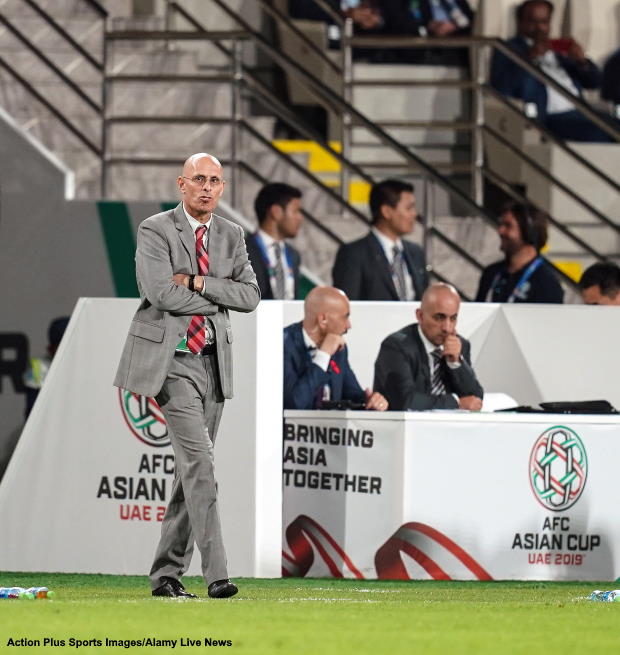
IF: Since the book ended, you took a role as sporting director at Pafos, but then stepped into the manager’s hot seat. What happened during your time at Pafos?
SC: I met Roman Dubov, who was one of the owners, at a competition that was happening in Cyprus. He called me up one night and said, ‘did you watch our game? We lost 2-1’. I said, Mr. Dubov, ‘I don’t work for Pafos, why would I be watching?’. He said, ‘we lost 2-1 to some village team, I need you to come and fix the problem’. I said, ‘as a coach or as a sporting director’. He said, ‘first come as a sporting director, we have a coach and we need you to help him’.
The next day I went to Pafos. I am familiar with the role of sporting director so I was able to go through the different departments and see some of the issues they were having but the main issue was on the field and the coach and the staff he had. I made a few suggestions. I was not going to go and coach the team for the guy or interfere with his selections or anything like that.
But unfortunately, he wasn’t able to change things and five games in, he had won one game and lost three. The last game they played they lost 4-1 at home and he got fired. I got a call 15 minutes after they had sacked him in the changing room, ‘look, you are the coach now for the next two games’. I said, ‘no I can’t accept that, I will help you find the coach as it’s my job. For two games, I am not going to do that’. They asked me to take training for the week so I took training and then they offered me a contract until the end of the season for 18 games, which I accepted so I was the sporting director and the coach at that time.
We won 12 of the 18 games, we lost four and drew two and I gave first team debuts to an 18, a 17 and a 15-and-a-half-year old and he was the youngest player ever to make his debut in the Cypriot league.
I thought we did okay. However, the club decided to appoint a sporting director at the end of the season, which I was expecting and then he decided to bring his own coach, which I was not expecting. That happened at the last moment and unfortunately I almost sat out the whole season last year because of that I had no chance to find another team.
IF: Was turning down the Port Vale job in 2016 a watershed moment when managing in England lost its appeal, or is there still the prospect you will come “home” in future?
SC: I turned down the Port Vale job because firstly, I had given my word to come back to India. I hadn’t signed anything but I had given [then All India Football Federation President] Mr. [Praful] Patel my word that I was coming. The second thing was that they were not allowing me to bring any staff and that was an issue. Also, I just could not shake someone’s hand and say I am coming and then not come.
Was it a watershed moment? I have always wanted to manage and be involved in football in England. I was at Bournemouth and Millwall, but never in a role that I liked. Sometimes you have to make decisions in life that you live by. I am generally upfront and honest and normally tell you what I think and normally do what I say and I was not going to disrespect India or the offer they gave me because I hadn’t signed anything.
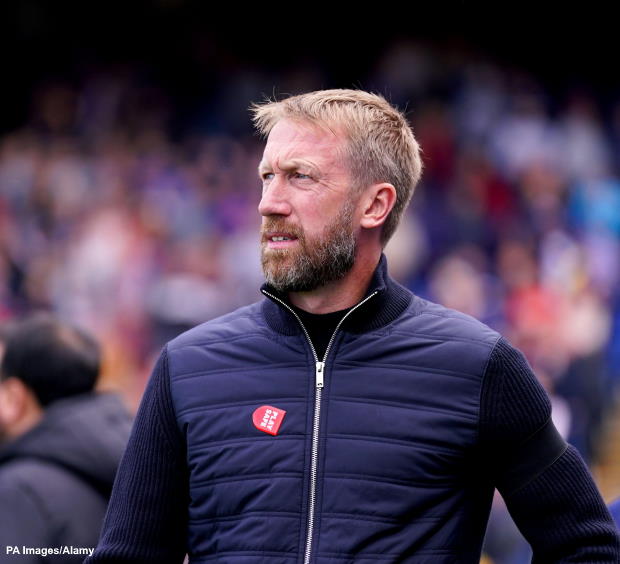
IF: Graham Potter built his coaching career outside England before joining Brighton and then on to Chelsea. You also had a distinguished coaching career outside England. Would you encourage young English coaches to take that leap and leave in order to gather experience outside their home country?
SC: Absolutely not, if they want to come back to England. Okay, we are looking at Graham Potter. He played 300 something games for Southampton and that’s a career. He was known in the circles. He spent seven years, I think it was, in Sweden. From the fourth division up, he did a fantastic job. His watershed moment was when he went to the UEFA Cup and beat Arsenal 2-1; I was at that game being an Arsenal fan.
He had roots in English football. If you are a young coach and you had a professional career in England, you have half a chance to get back in but I didn’t. I didn’t play in England. I played in the United States and Cyprus. So for me, establishing myself in England – they don’t know me, they didn’t know what I had done. If you are a young coach and you have played in England at a decent level and you have got contacts that can get you back because once you get out of England, they don’t care what you do unless you are in a top European country winning the Champions League or the UEFA Cup, then you might get some respect.
Graham Potter qualified for Europe and beat Arsenal and he got noticed and his body of work in Sweden was respected. If you are in Asia or Africa and maybe even the United States, I don’t think it’s respected the same way as if you were coaching in a European country.
IF: Do you think clubs in England automatically assume that someone is a good coach because they had a decent to a great career as a player? Steven Gerrard hardly spent a year in the Liverpool academy before landing the Rangers job. Frank Lampard had no coaching experience at any level before becoming the Derby manager.
SC: I am not against ex-players getting jobs, they should but I am against the players not doing the licenses or not doing the lower level licenses. It’s not about if Frank Lampard can make the pass, we know he can, but can he teach that to young players? That’s why you have the course. It is to teach you to understand how young players learn. It’s not about your ability.
You cannot blame some of these players. Why did the Chelsea board offer him the job after he was at Derby? He took them to the [playoff] final and they didn’t qualify but they still offered him the job. Then after what happened at Chelsea, he did get offered the Everton job.
There is a little bit of it’s because he is Frank Lampard. If he was Stephen Constantine, I would not get another chance in England and if I get one, I am only ever going to get one chance. If I don’t win enough in the first ten or 12 games, I’d be out of the door and never to be heard again.
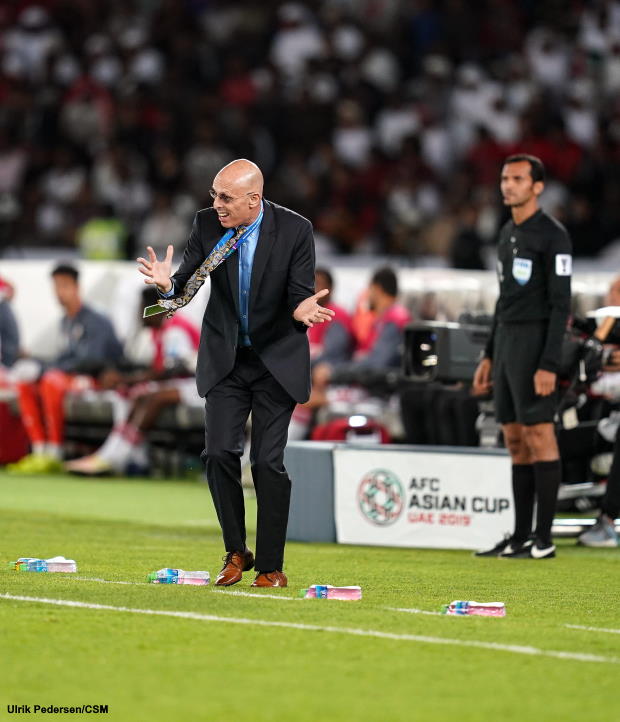
IF: Do you feel the tide is close to turning in terms of clubs valuing coaching qualifications over just having been a former player or is England in particular unchanged?
SC: I don’t think it’s the coaching credentials because of all those guys would have got their pro-licenses. They don’t give them away. You need to work your *expletive* off in England to get your pro-license. The problem are the ownerships and the sporting directors who are employing managers who have zero or limited experience or who have failed in their previous three jobs.
If you are an employee anywhere and you did a lousy job in your previous three stints, you are not going to get another job so easily. Football is a different animal, I understand that. A lot of people think with their heart and not their mind.
My issue is that you are a successful businessman, why would you give the team to an inexperienced 40-year-old who hasn’t coached or managed to any great extent or at any level and or he has failed in his last two or three jobs? This I don’t understand.
Maybe that’s why the role of the sporting director is coming to the fore. Although you don’t need a qualification to be a sporting director, it’s one of the most important jobs in football because they are covering and handling things. I am actually taking my masters in sporting directorship.
IF: Speaking of England, it’s well known that Arsenal are your club. What do you make of the job done by Mikel Arteta and do the club deserve credit for sticking with him through tough times?
SC: I have to confess that I wasn’t over the moon when he got the job because I didn’t think he had done enough to get that job. He got that job based on the two or three years with Pep [Guardiola] at Manchester City. When it did look like things were not going his way, this is where I give Edu and the club super respect, they stuck with him and he has proven a lot of people wrong. I am extremely happy for him and he has done a great job. It’s been a long time since we have been in this position. I think that’s why you have a sporting director who appoints the coach, believes in the coach and sticks by him.
IF: If they don’t win the title, given Man City’s inconsistency, Liverpool falling back, Tottenham in crisis and Man United still building, will it be a missed opportunity? Or are you confident they can now become regular challengers?
SC: Oh, absolutely. Five points ahead or eight with Manchester City having a game in hand? I think it’s ours to lose.
I am going to say yes [they are going to be regular contenders – why? Because you look at the age of the team. When we were screaming for Arteta to be sacked, we were looking at the beginnings of a team and you never judge a team in their first season. There was an improvement in the following season and there have been improvements again this season.
Age-wise it will continue. When you go out and get 19, 20 and 21-year-olds, they are going to be there for a few years. I thought signing [Martin] Odegaard was excellent; they gave him the ball more and gave him more responsibility. He was restricted in how he could play and given the names around him [at Real Madrid], they are not going to give him the ball as much as that guy.
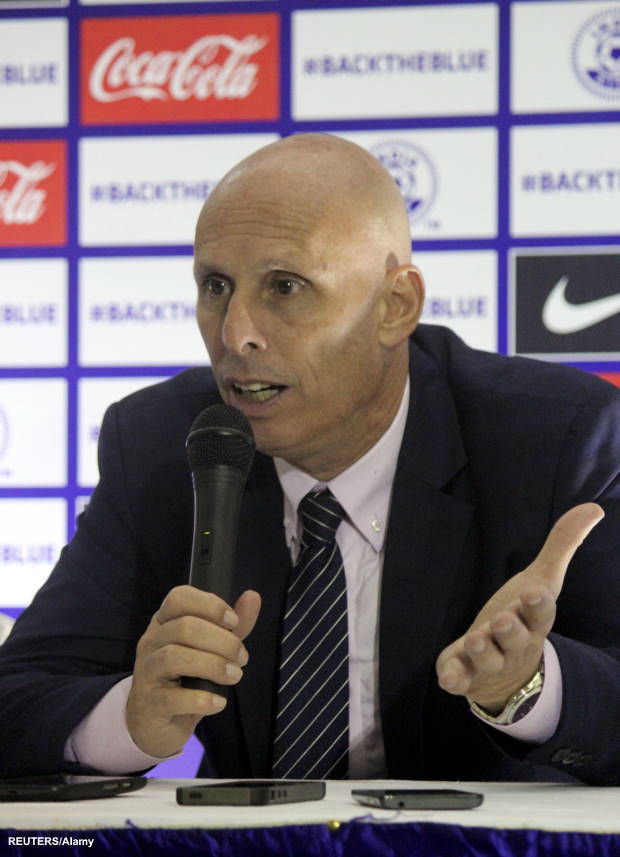
IF: Roy Hodgson has just returned as Crystal Palace manager at the age of 75. You are a long way off that, but you have now had over 20 years in management; would you go on as long as Hodgson?
SC: I don’t know. I still like being on the pitch and I still think it’s a buzz but I can also see myself in the role of sporting director. Like I said I have just started my master’s degree in sporting directorship with VSI (Executive Education) at East London University. I am three months in and so much work, my god (laughs). I just got my first assignment back last week and I actually passed and I will take it (laughs more). There is a long way to go and a lot of work.
I can see myself doing that role because it allows me to have more of an impact on everything. I have a big affiliation with academies. I love seeing the young players, that’s why in India we gave 49 players their international debut in four years. At Pafos, three Under-18 players. I like that aspect of it and I think I can have more of an effect.
IF: You mentioned not having a regular agent in the book. Do you feel not having had an agent to look for opportunities for you and put your name forward limited your options, especially in England?
SC: Not having the right agent might have been. Look, I am a nobody from nowhere and generally the nobodies from nowhere don’t go anywhere. It’s easier to place a big name because he has been in the game or he is known.
Most of my work has been outside of the UK so out of sight and out of mind and never mind I was not a regular player in any of the leagues. I think when you talk about England, it hasn’t helped me and I have had some top agents in England try to help me. But it will always come down to, ‘well, he has played in the league, he knows the league’ or ‘he has a bigger name than you’. I can’t change that.
IF: If you had not injured your ACL in the United States, do you think you would still have been a coach? Or was it a sliding doors moment in your career?
SC: No, because I had already decided that I was going to coach. I had my D license, C license and B license before I got injured. For me, loving the game the way I do, I didn’t want to do anything else. I was thinking okay I am not a very good player, I don’t know how long I am going to last so what am I going to do afterwards? I remember when I was at Pennsylvania Stoners, they asked me to go and do some clinic with some kids, basically babysitting. I went two or three times and oh, I can make that kid kick that ball that way, how cool is that!
That was lodged in the back of my head and then when I heard about the coaching courses in the United States, let me get one and learn. I am still learning.
IF: You played in the United States, but have never managed in the country. The Sacramento Republic job was an opportunity, but were there any others and did you actively look for positions in the US? It would seem a natural fit given your connection with the country.
SC: Yes it would have been [a natural fit]. Sacramento Republic was very close and I was told by management it was between me and Preki. Preki got the job and he did a great job to be fair. An ex-US international and again it went to name but he did a good job.
I would love to go the United States and coach. I still have a big affiliation with the States, I’ve got some friends there and I spent ten years of my life there. Fantastic place and fantastic work ethic in football, and the MLS and the USL are well-established leagues. I think there is scope and given the opportunity, I would be open to that.
IF: You’ve managed and coached at some iconic stadiums, packed with fanatical fans. From PAOK’s Toumba in Greece to the Red Castle in Sudan – which is the atmosphere you’ve enjoyed the most? And which ranked as the most intimidating?
SC: The most intimidating I would have to say is Toumba in Greece. Oh my god, it was unbelievable! We were being abused from the warm up and until an hour after the game. The atmosphere was fantastic. Sudan was a tough place to play home or away but I think Toumba has to be the most intimidating place.
I think [the most enjoyable was] when we beat Thailand 4-1 in Dubai, it was just packed with Indian fans. To win that game, our first win in 55 years, it was a fantastic atmosphere.
IF: Finally, more has happened in your career since the book ended. We will be getting an updated copy in the future?
SC: I have been asked that a couple of times. I think personally there should be, I just need to get Owen Amos [the co-author] off his arse and help me do it. I wouldn’t do it with anybody else.
